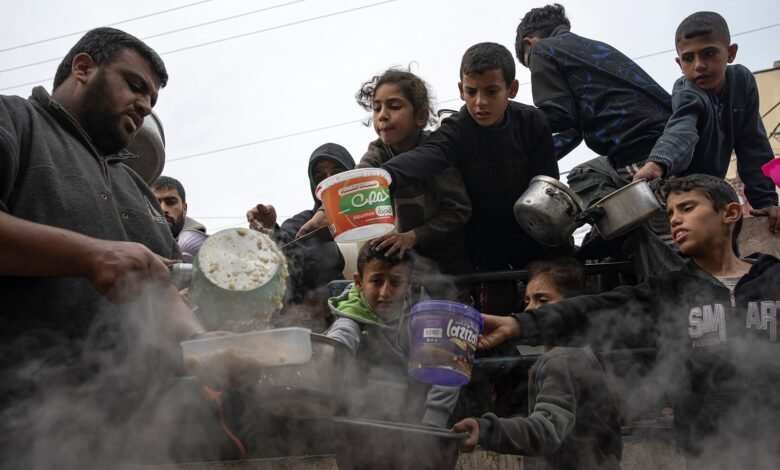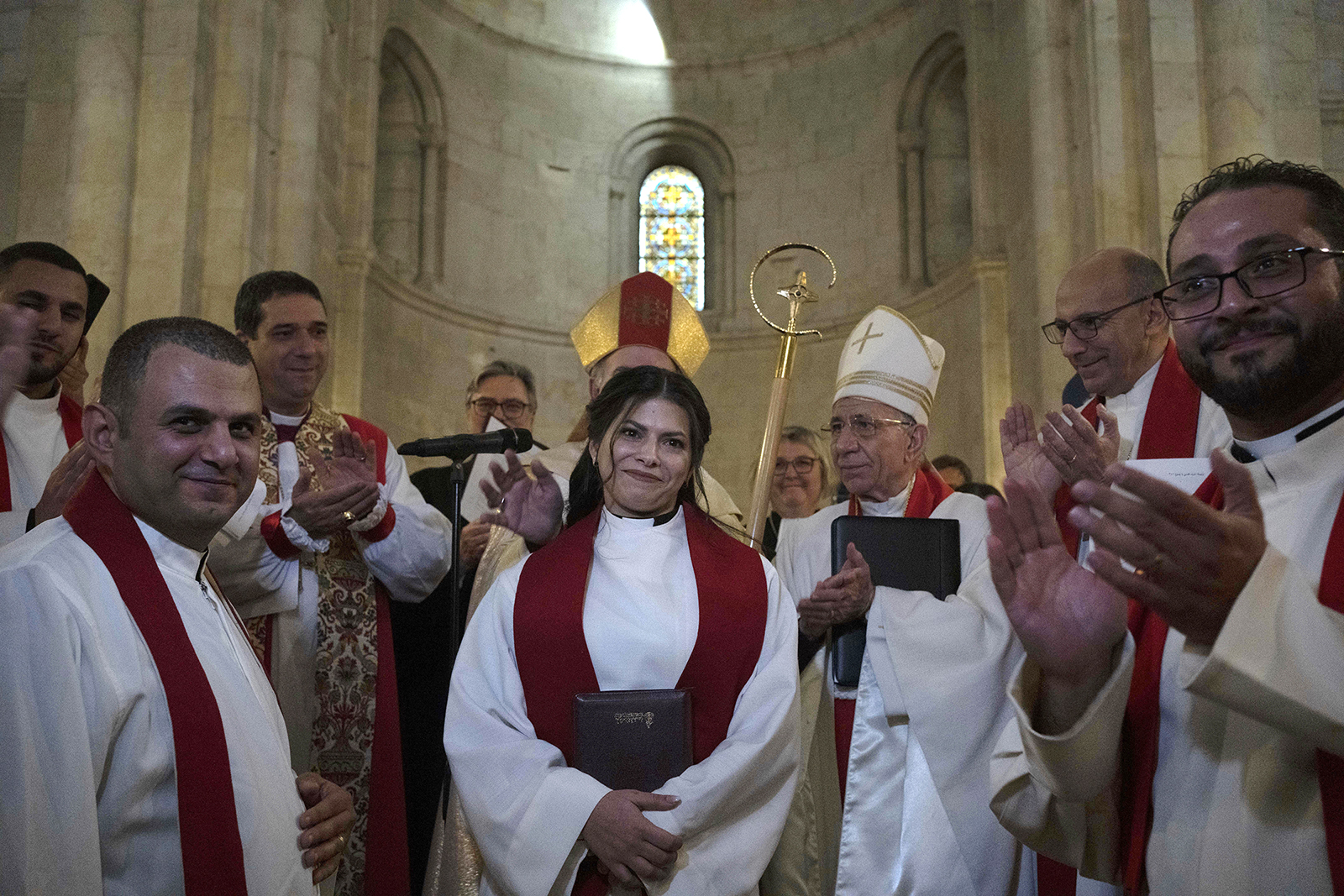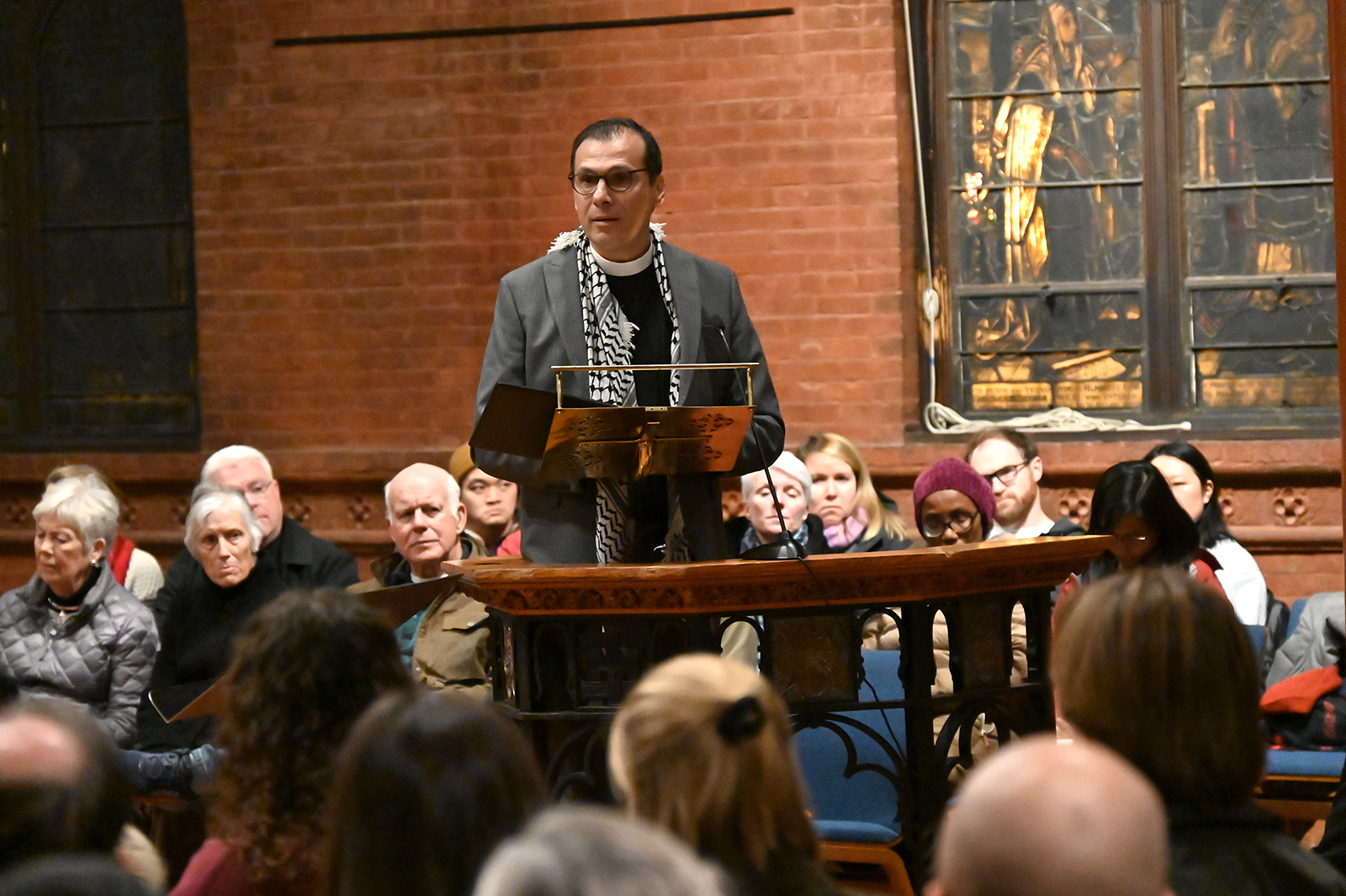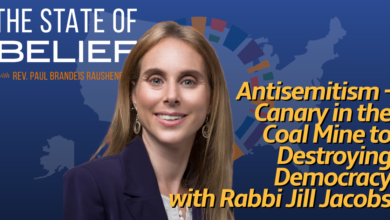Western churches called for cease-fire. Palestinian Christians heard empty words.

(RNS) — The Rev. Sally Azar started the year on a high note. In January, Lutherans flew in from around the world to celebrate her ordination as the first female Palestinian pastor. Reporters and photographers clamored to get time with her, writing features about the glass ceiling breaking in Jerusalem.
But since Oct. 7 and the outbreak of war between Israel and Hamas, Azar has struggled to keep her 2,500 congregants, scattered across the occupied territories and Jordan, together. Many in the West Bank are experiencing severe restrictions on freedom of movement, increased settler attacks and job losses.
Amid the protests and dislocations, Azar said, Western Christian church leaders’ support for Israel or neutral declarations about both sides of the conflict have left the community feeling abandoned. Some view the war as a moment for Western denominations to reckon with their colonialist past.
“Everyone tries to be neutral, and from a Christian perspective, I don’t think this is the time for neutrality,” Azar said.

The Rev. Sally Ibrahim Azar, center, a Palestinian Christian and council member of the Lutheran World Federation, is applauded by clergy after she was ordained as the first female pastor in the Holy Land, in the Old City of Jerusalem, Jan. 22, 2023. (AP Photo/Maya Alleruzzo)
Archbishop of Canterbury Justin Welby, the primate of the Church of England, which has a long relationship with Palestine’s Anglican community dating back to the British Mandate, has visited Israel since the war began. On Nov. 13, in a speech about the conflict, Welby said Israel’s bombardment and siege of Gaza could not be “morally justified.” But he clarified that there was no equivalence between Hamas’ atrocities and “the right and duty of Israel to defend itself,” a position he reiterated on Dec. 14.
The Evangelical Church of Germany, which represents some 20 million German Protestants and founded the church where Azar is pastor in 1898 — Emperor Wilhelm II arrived in Jerusalem on a white horse to give his blessing — has called for a stop to the fighting while consistently defending Israel’s right to self-defense.
The church’s leader, Annette Kurschus, who recently resigned over allegations that she covered up sex abuse, told a Nov. 11 synod that “there is no justification for hatred of Jews. And any attempt to relativize the October 7th massacre is anti-semitism. Every ‘yes, but’ is trivialized.”
Such give-and-take overtures have left some Palestinian Christians stunned.
“A cease-fire is not enough,” said the Rev. Mitri Raheb, a Lutheran pastor and Palestinian theologian in Bethlehem.
Predicting that, however the current war ends, more fighting was likely within years, Raheb said church leaders outside the Holy Land need to take a role in pressuring their powerful governments in the West to find a real political solution.
“Without justice for the Palestinians there will be no peace for Israel,” Raheb said. “Justice is at the heart of the gospel. We cannot compromise on justice. The other churches want peace without justice.”
On Nov. 27, a delegation of Palestinian Christians traveled to Washington to lobby the Biden administration. They delivered a letter asking for a comprehensive and immediate cease-fire, stamped with the insignia of Lutheran, Orthodox, Armenian and Catholic leaders in Bethlehem.
The Rev. Munther Isaac, a Lutheran pastor and one of the delegates, said he was “very disappointed” with recent statements, which didn’t address the history of the conflict. “Things did not start in Oct. 7. They focus on Israel’s right to defend itself, but what about Palestinians’ right to defend themselves and their lands from colonization?” he said.

The Rev. Munther Isaac, pastor of Bethlehem’s Evangelical Lutheran Christmas Church, addresses a vigil at St. Mark’s Episcopal Church in Washington, Nov. 28, 2023. (RNS photo/Jack Jenkins)
“I am troubled when churches just repeat the Israeli narrative without questioning it,” he added. “They attempt to give rationale to a genocide.”
Even the Vatican’s responses were insufficient in Isaac’s eyes. On Nov. 22 Pope Francis told the general synod that Israel’s campaign in Gaza had “gone beyond wars.”
“This is not war, this is terrorism,” Francis declared. In response to a question about whether Francis had taken a stronger stance, Isaac replied: “Yes. But not enough. We need more.”
“What I expect from churches is to call things with their name: It is a genocide. There are clear war crimes as attested by multiple agencies. Churches by and large are still to explicitly and directly condemn Israel,” he said.
Another delegate who flew to Washington, Tamar Haddad, expressed similar disillusionment. A coordinator at Churches for Middle East Peace, a coalition of Orthodox, Catholic and Protestant churches in the region, she accused Western churches of wavering in their support for a cease-fire. If they “did call for a cease-fire,” she said, “they always have it next to contradictory statements.”
“I don’t know what they’re afraid of,” said Haddad. “They are focusing on the wrong thing over and over again.”
Early in the war, Anglicans in the West Bank voiced similar objections in an aggravated letter on Oct. 21. Congregations in the West Bank cities of Ramallah and Birzeit wrote that they were “utterly perplexed” by the archbishop of Canterbury’s public statements supporting Israel’s right to self-defense.
“Does the Church not believe that what has been taking place is not the result of 75 years of systematic denial of the inalienable rights of our people while the whole world is simply watching?” the letter to Welby read.
Raheb and Haddad credit several denominations and organizations in the U.S., particularly Protestant ones, with stronger support for Palestinians. The Presbyterian Church (USA), which passed a resolution in 2022 labeling Israel an apartheid state, has expressed support for Palestinians’ “right to live free in their land, without occupation” and Israel’s “right to exist as a free and sovereign nation.”
The United Church of Christ, the Disciples of Christ and the Evangelical Lutheran Church in America, along with 26 other Protestant groups, made note of the “decades of institutionalized oppression and collective punishment” of Palestinians in a letter to Congress on Oct. 12.
But these churches are not the ones with influence on the Hill, Raheb said, pointing to the alignment between American evangelical Christians and the Republican Party.
Indeed, certain houses of prayer appear to carry a historical stigma, and it is not so much their official stance that is being criticized as their familial connections to the imperial machine.
Palestinian Christians are also asking Western churches to repent and change not only for their current stances but their country’s historic roles in creating the conditions for conflict.
“Why could the archbishop not say, ‘We did wrong to you Palestinians, through the Balfour Declaration, through the British Mandate,’” said Raheb. “‘We are sorry for that, and we want to make up for that so that this country can be shared by two people and not by one.’
“They never repented for starting this whole settler colonial project in Palestine. That was never addressed,” Raheb said, referring to Britain’s principal role in Israel’s establishment.
For Azar, it is not a question of historic culpability but of humanity. “Churches are not politicians,” she said. “We respond in a Christian way.”
Source link





